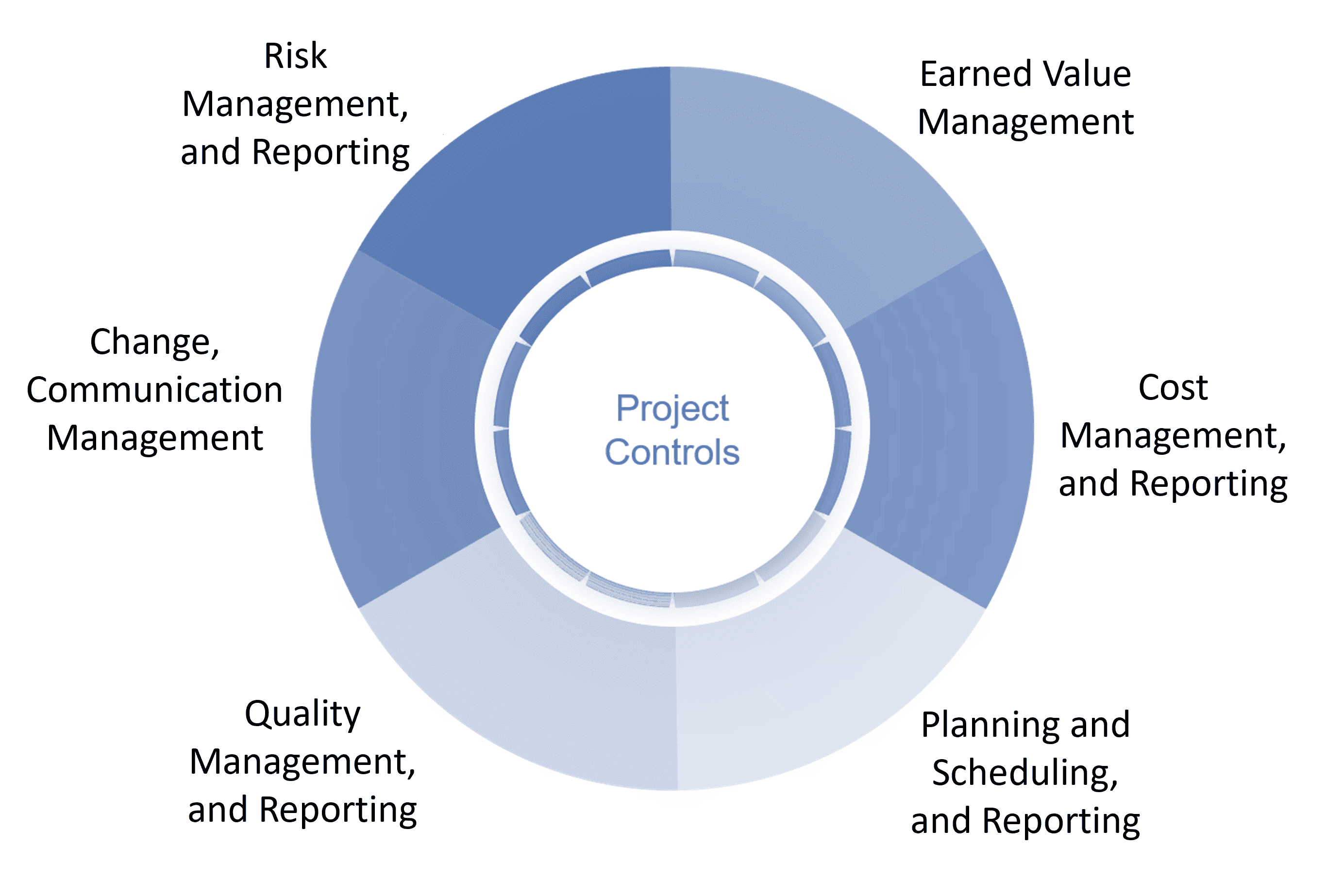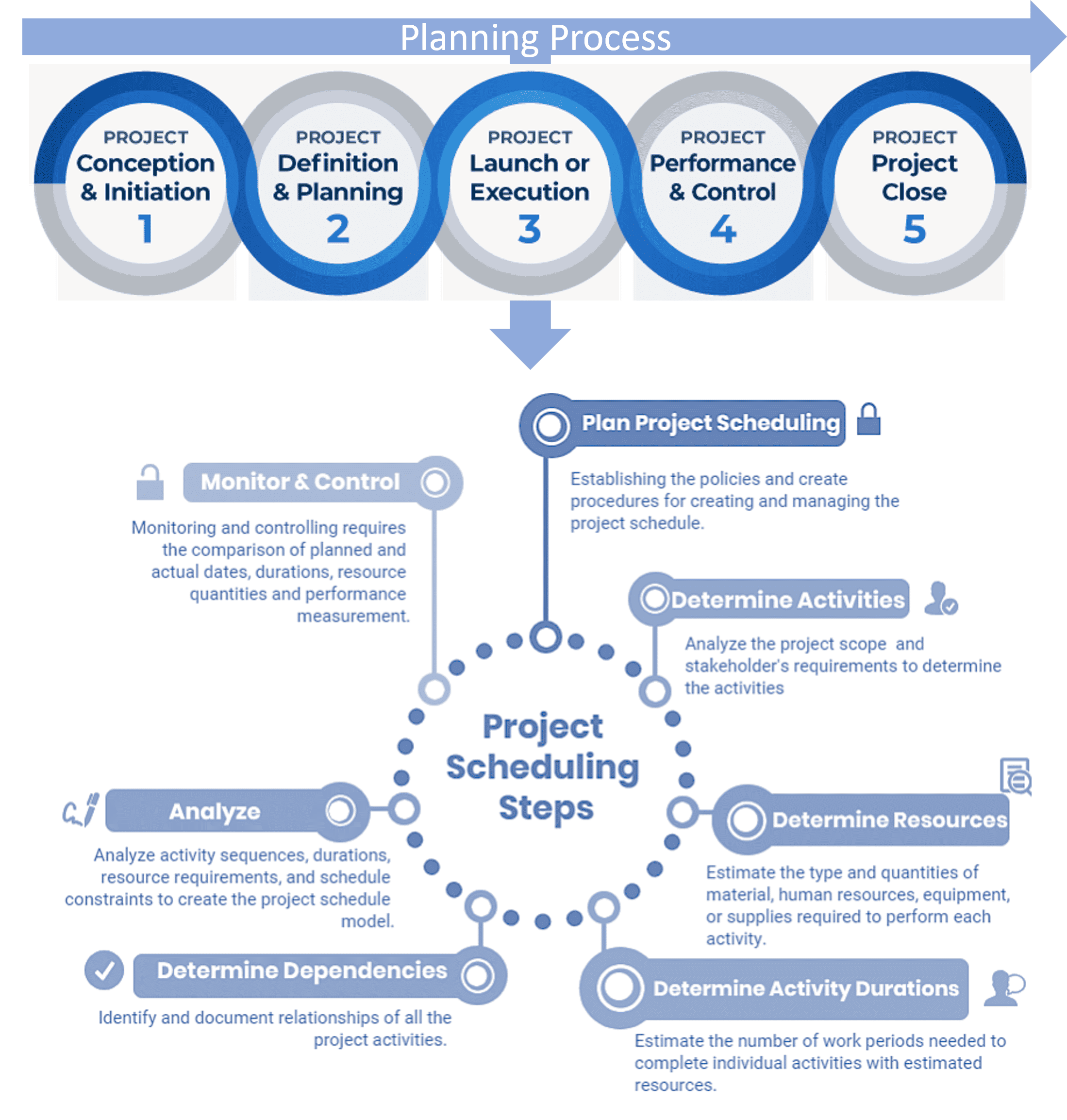Services | Project Controls | Planning & Schedule Management
PLANNING & SCHEDULE MANAGEMENT
Our Project Controls Engineers collaborate with you to establish the appropriate level of detail required for your project. We assist in identifying the necessary steps in the planning process and defining the expected outputs and deliverables. Moreover, the planning process generates the essential foundational data for the development of the project schedule.
Planning and schedule management are essential aspects of project management that help ensure projects are completed on time, within scope, and on budget. They involve the systematic organization of tasks, resources, and timelines to achieve a project’s objectives. Here is a description of each:
Planning
Planning is the process of defining project goals, objectives, and scope, as well as identifying tasks, resources, and constraints. It involves:
- Defining project goals and objectives: Clearly establish what the project aims to achieve and the desired outcomes.
- Identifying tasks and dependencies: Break down the project into smaller tasks and determine their relationships and dependencies.
- Estimating resources and time: Determine the required resources (e.g., personnel, equipment, materials) and estimate the time needed to complete each task.
- Risk assessment: Identify potential risks and develop contingency plans to address them.
- Developing a project plan: Create a comprehensive plan that outlines the project’s scope, timeline, resources, and budget.
Schedule Management
Schedule management involves the creation, monitoring, and control of a project schedule to ensure that tasks are completed within the planned timeframe. Key components include:
- Creating a project schedule: Develop a timeline that outlines the start and end dates for each task, considering task dependencies and resource constraints.
- Critical path analysis: Identify the sequence of tasks that have the least amount of flexibility in their scheduling (the critical path). This helps determine the project’s overall duration and highlights areas where delays could impact the entire project.
- Baseline schedule: Establish a baseline schedule, which is a snapshot of the project schedule at a specific point in time. It serves as a reference for comparing actual progress against planned progress.
- Monitoring progress: Track the progress of tasks against the baseline schedule to identify any deviations or delays that may impact the project’s timeline.
- Schedule control: Implement corrective actions to address deviations or delays, such as reallocating resources, adjusting task durations, or modifying the project scope.
- Updating the schedule: Periodically revise the schedule to reflect changes in project scope, resource availability, or other factors that may affect the project’s timeline.
Effective planning and schedule management are crucial for project success, as they help prevent cost overruns, missed deadlines, and scope creep. They also facilitate communication and collaboration among project stakeholders and ensure that project objectives are met.
Our scheduling strategy demonstrates
Achievability and measurability
The schedule is designed to be realistic, attainable, and allows for the monitoring and Evaluation of progress throughout the project lifecycle.
Early identification of schedule slippage
The strategy enables prompt detection of any deviations or delays, facilitating timely intervention and minimizing potential impacts on the overall project timeline.
Schedule baseline as the foundation for progress assessment
The schedule baseline serves as a reference point for Evaluating progress and measuring performance, ensuring that any deviations from the plan are quickly identified and addressed.
Let’s get in touch



